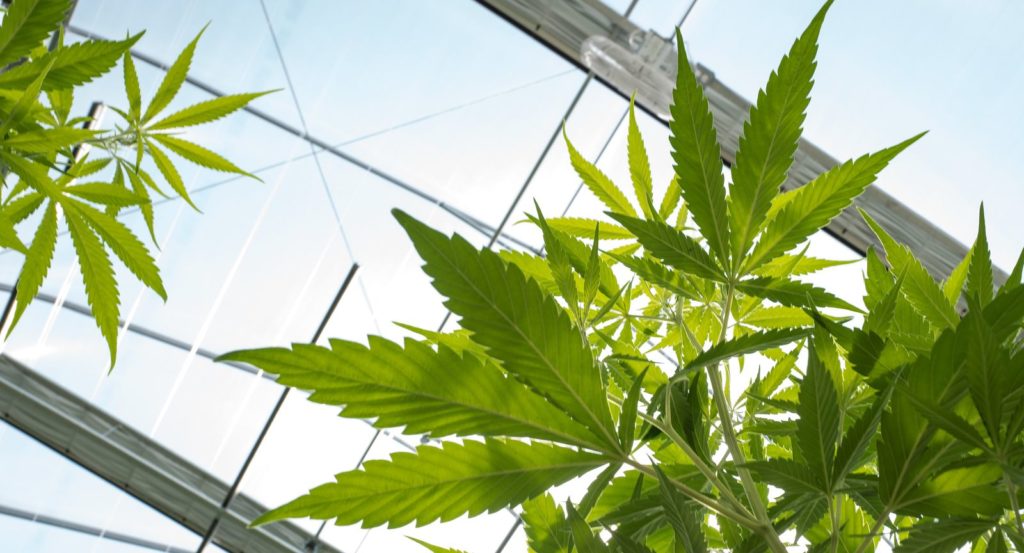The SAFE Banking Act was excluded from the $1.7 trillion government funding bill, sources told Bloomberg, Politico and Marijuana Moment on Monday — meaning the perennial cannabis banking reform measure will have to be reintroduced during the next congressional session, which begins Jan. 3.
“The failure to pass my bipartisan ‘SAFE Banking Act’ means communities in Montana and across our country will remain vulnerable to crime where legal businesses are forced to operate in all-cash,” Sen. Steve Daines, R-MT, said in a statement seen by Marijuana Moment.
This would mark the third time this year the SAFE Banking Act, which would protect financial institutions that provide services to legal cannabis businesses, has been left out of legislation to which it was attached.
The measure was dropped from the text of the National Defense Authorization Act (NDAA) this month, despite being included in the House’s version of the defense bill, which passed in July. SAFE Banking was also left out of the America COMPETES Act, a manufacturing and innovation bill aimed at boosting the U.S.’s competitiveness with China, in June.
“While we are disappointed that the Senate was unable to pass this critical piece of legislation before the end of this Congress, we remain hopeful that the work we have been doing with our allies on the Hill … will pay off when Congress reconvenes in 2023,” Kaliko Castille, board president of the Minority Cannabis Business Association, said in a statement Monday.
The SAFE Banking Act has passed in the House seven times but has consistently met opposition in the Senate, where even co-sponsors of the legislation have decried attaching it to other measures.
“When you get down to the last few weeks, like this, if those bills haven’t had the strength and the legs on their own to get time on the floor, the idea of attaching all of that to an omnibus that nobody gets to see before they vote on is truly offensive to me,” Sen. Cynthia Lummis, R-WY, told Bloomberg this month.
Opposition from Senate Republican leadership has been even stronger. Minority Leader Mitch McConnell, R-KY, on the Senate floor this month during NDAA proceedings, spoke out against “making our financial system more sympathetic to illegal drugs” and shoehorning measures like SAFE Banking that have “already failed to pass the Senate earlier this year.”
Keep up with the story. Subscribe to the Banking Dive free daily newsletter
“They’re dead set on anything in marijuana,” Sen. Cory Booker, D-NJ, told Marijuana Moment. “The caucus is clearly divided, but the people in power in their caucus are clearly against doing anything on marijuana.”
Still, at least one cannabis business advocacy group blames Democrats for the bill’s failure.
“Democrats have promised action on cannabis consistently for the last two years, yet leadership consistently failed to prioritize and advance marijuana reform legislation, including legislation to provide clarity to banks and to provide grant funding for state-level expungements efforts, despite having several opportunities to do so,” NORML Executive Director Erik Altieri said in a statement. “Democrats’ failure and the GOP’s continued resistance to any progress is out of step with voters’ opinion, is bad politics, and most importantly, it is bad public policy.”
Another example of that resistance came this summer, when the Justice Department (DOJ) reportedly drafted a memo at the request of some Senate Republicans, outlining the potential unintended consequences of cannabis banking reform, including the risk of money laundering.
A small group of Senate Republicans met with the DOJ last week, Marijuana Moment reported, to seek assurances that the SAFE Banking-related risks were effectively resolved.
SAFE Banking’s prospects in the next Congress are unclear. Though the measure saw wide bipartisan support, passing last year on a 321-101 vote, Republicans will hold the majority in the chamber beginning in January, and effectively control whether the bill gets to the floor.
Additionally, the author of the bill, Rep. Ed Perlmutter, D-CO, is leaving Congress at the end of its current session.
H/T: www.bankingdive.com



